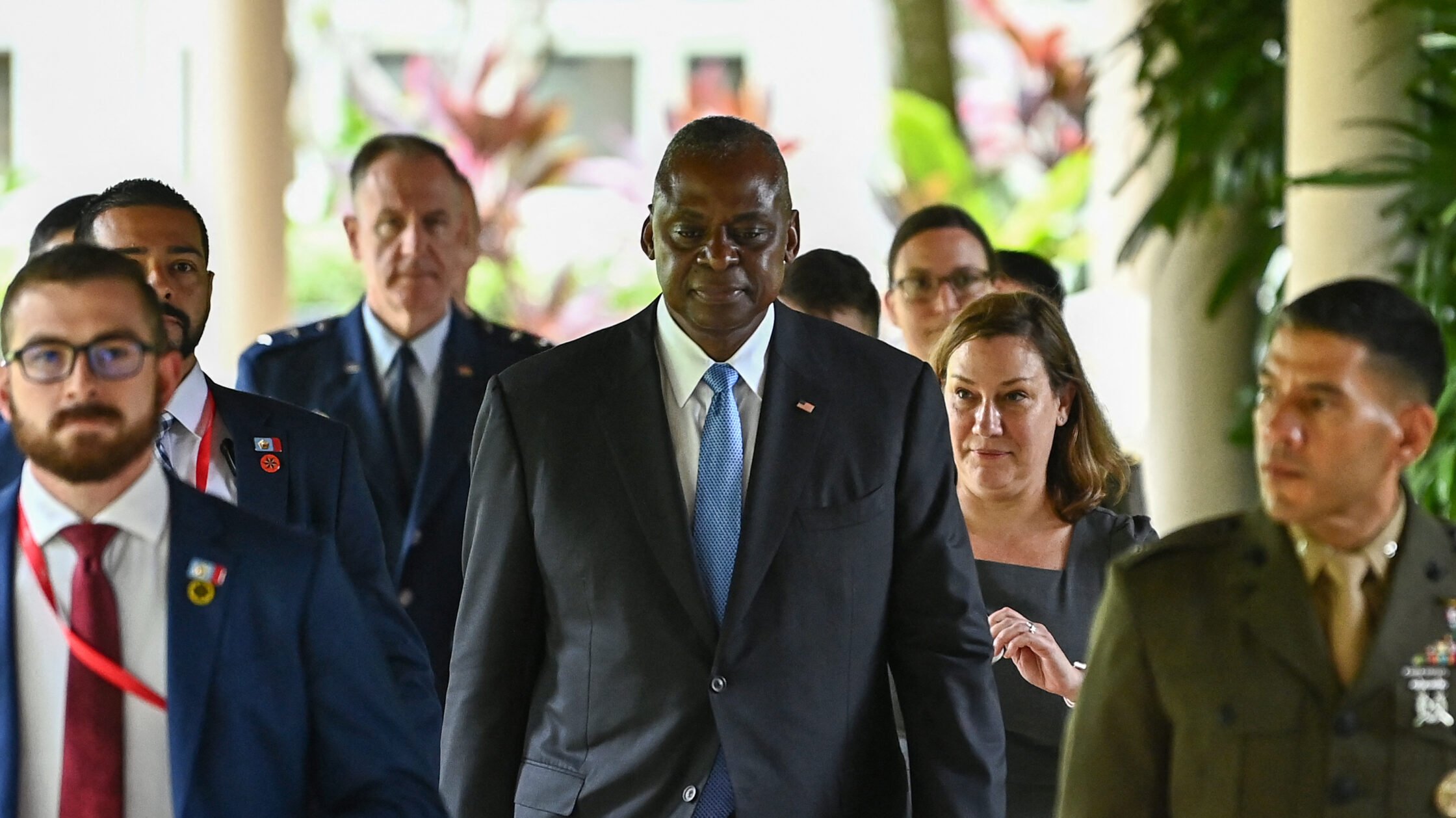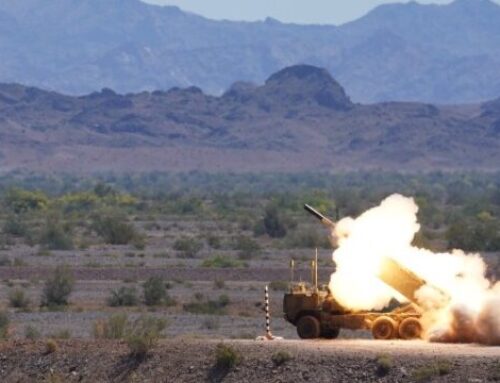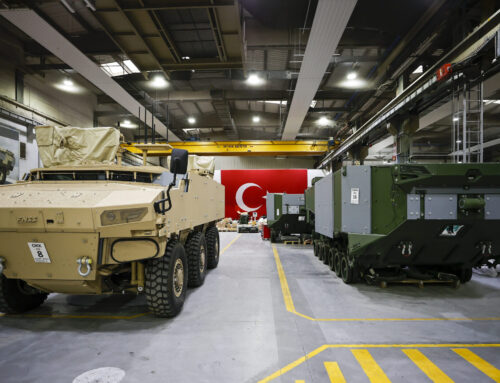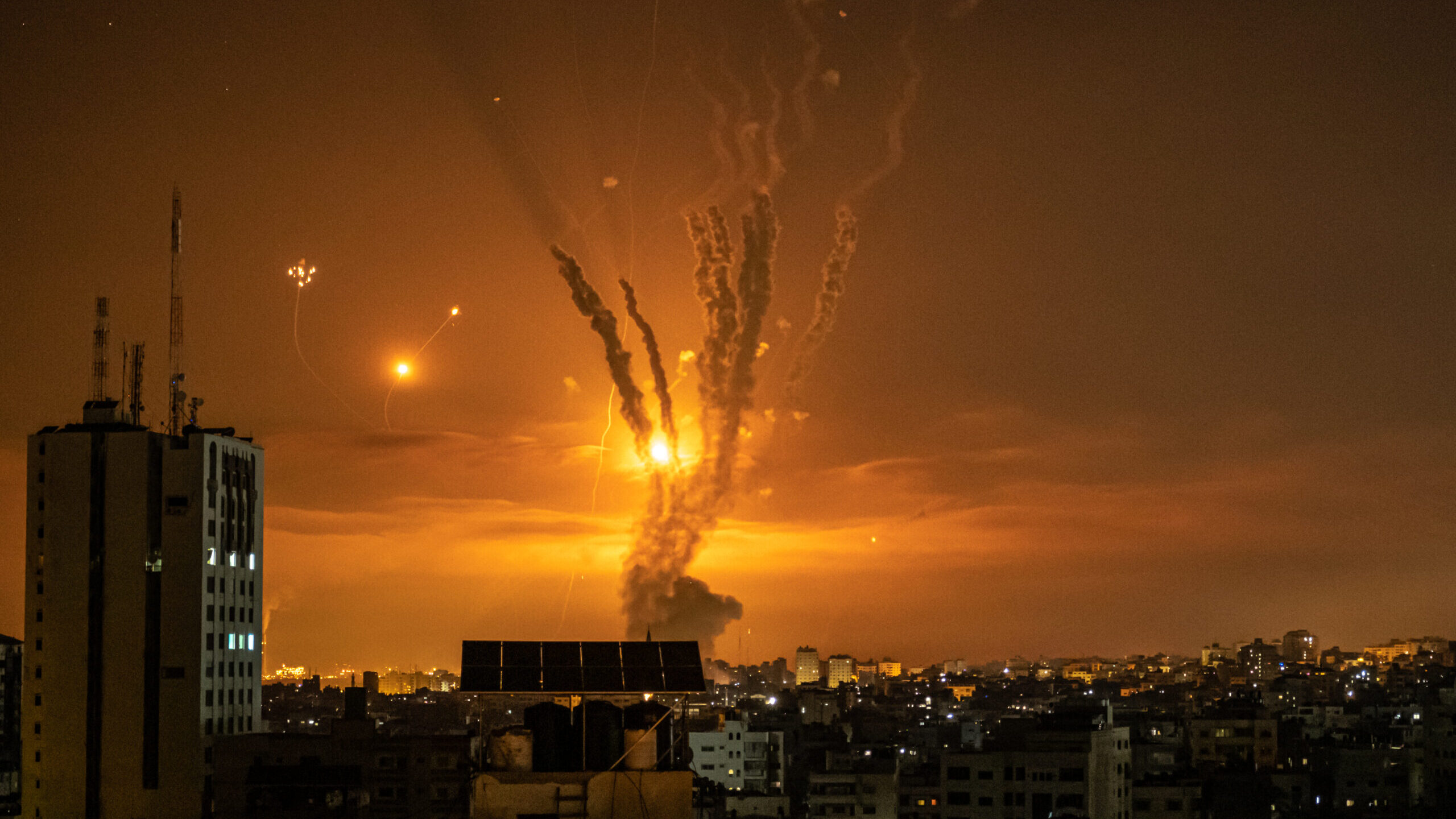US Secretary of Defence Lloyd Austin (C) walks out after a bilateral meeting with China’s Defence Minister Dong Jun on the sidelines of the 21st Shangri-La Dialogue summit at the Shangri-La Hotel in Singapore on May 31, 2024. (Photo by NHAC NGUYEN/AFP via Getty Images)
SHANGRI LA DIALOGUE — It was the high-profile meeting of the the three-day event here. The US Defense Secretary, Lloyd Austin, was expected to engage with the new Chinese defense minister, Adm. Dong Jun, the first face-to-face between the two.
They met in the early afternoon on the sidelines of the Shangri La Dialogue, in private, and the read-outs from both sides suggested some blunt talk, but were reassuringly calming, especially in that they spoke of further talks to accomplish concrete objectives.
On the Chinese side, the official English-language Global Times quoted the Defense Ministry spokesman as saying the meeting was “positive, practical and constructive.” It lasted a bit longer — 75 minutes — than planned, spokesperson Wu Qian told reporters during a press conference.
Dong said that “stabilization” of military relations between the US and China “does not come by easily and shall be cherished dearly,” according to CNN, adding that neither country should “smear” the other.
On the US side, the first item of business was that Austin “emphasized the importance of maintaining open lines of military-to-military communication between the United States and the PRC,” according to the American readout.
A “crisis-communications working group” will get started before the end of the year to implement what President Joe Biden and PRC President Xi Jinping agreed in November 2023, and “both sides will resume telephone conversations between theater commanders.”
The readouts suggest the two sides saw the Taiwan issues as they usually do, in very different rhetorical terms. Austin “expressed concern about recent provocative PLA activity around the Taiwan Strait.” The US invoked the usual commitments to the “One China policy, which is guided by the Taiwan Relations Act, the Three U.S.-China Joint Communiques, and the Six Assurances.”
Dong said, according to Global Times, that the US had no right to “interfere” in Taiwan’s affairs by sending US congratulations Taipei’s recent election and by and sending a congressional delegation to the “inauguration ceremony. That kind of behavior, Dong reportedly said, violated America’s commitment to the One China principle and send the “wrong signals” to Taiwan’s “secessionist forces.”
“The behaviors of the US side seriously breached the One China principle and the stipulations of the three China-US joint communiques, severely violating the commitments made by the US side and sending wrong signals to ‘Taiwan independence’ secessionist forces,” he reportedly said.
When it comes to disputed waters in the Pacific, including around the South China Sea, Dong purportedly said, vessels can operate freely but “there is a huge difference between freedom and willfulness, between navigation and trespassing.”
Global Times also reported that Dong “stated that currently, emboldened and supported by outside powers, the Philippines has broken its own promises and continues to make provocations.”
The defense minister, who has no command authority and is largely used to communicate Chinese positions to foreign entities, made clear the deployment of the Typhon missile system to the Philippines by the US “under the guise of military exercises” is strongly opposed by the PRC.
Meanwhile, Austin repeated the US mantra that it would “fly, sail, and operate — safely and responsibly — wherever international law allows.”
The most intriguing bits, about which China did not comment per international reports, concerned what the US said was a discussion about “Russia’s unprovoked war against Ukraine and the PRC’s role in supporting Russia’s defense industrial base.” Austin also brought up “concerns about recent provocations from the Democratic People’s Republic of Korea (DPRK), including its direct contributions to Russia’s ongoing assault on Ukraine.”
The US readout ended with this reassuring statement: “Department officials will continue active discussions with their PRC counterparts about future engagements between defense and military officials at multiple levels.”











